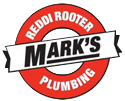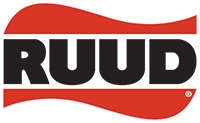FAQs
Mark's Reddi Rooter
Have a question? We have the answer. Check out these FAQs and give us a call today for more information!
-
What are the signs of clogged drains?
A number of signs can indicate a clogged drain. If water is draining slowly in your sinks and tubs, something may be clogging the pipes. Similarly, if you flush the toilet and water backs up into your sinks or tubs, a blockage may be preventing the sewer water from leaving the house.
In some cases, you may hear excessive gurgling in your drain pipes. You may even notice bad odors. These can come from a blockage, causing the drain and vent to create excessive pressure and then force sewer gas to escape at the plumbing fixtures due to partial system failure. If you're noticing these signs and need proper drain cleaning Madison, WI residents recommend, contact us today.
-
Can I get rid of clogs on my own?
If you notice any issues, you can try to remedy the situation yourself. You can buy liquid clog removers at many hardware or grocery stores. Simply pour these cleaners down the drain and they'll break down the clog.
However, you need to be careful. Commercial drain cleaners can irritate your skin and eyes or damage your drains or pipes. If you decide to use a clog remover, make sure that you check the manufacturer's instructions. Most products can only be used in sinks or tubs and not in toilets. Most of the time, drain cleaning requires that you remove part of the drain system to get a drain snake into the pipe. This would usually be a P-trap or a toilet component. For more tips on performing a drain cleaning Madison, WI residents deserve, contact us today.
-
When should I call the professionals?
If you're having any drain issues, you should call a drain cleaning company as soon as possible. These professionals can find the clog and clean your drains for you. If you ignore the issues, sewage may back up and spill into your home, leading to expensive cleanup and repairs.
If you're trying to solve the issue on your own with a clog remover, pay attention to how much you use it. If you find yourself using that product on a regular basis, your drains likely need professional help.
Whenever you notice a small leak in your home, this may be a sign that your clogged drains are causing issues elsewhere, too. According to ComfyLiving, small leaks can waste up to 10,000 gallons of water each year. Contact us today for a drain cleaning Madison, WI homeowners recommend.
-
What is the best method for drain cleaning?
The best drain cleaning method depends on the issue you're having, the age of your pipes, and a few other factors. If you have a plugged drain, you'll likely want to hire a professional to clean them with an auger.
Sometimes called a drain snake, a drain cable that's rolled up into a rotating drum machine and breaks up the clog as it's fed through your drain system. You can buy your own augers but, ideally, you should not use one on your own. Too much force could easily break through the pipes. When it comes to using an auger or drain snake, you really want to match the equipment to the specific drain being cleaned. This includes everything from the size of the machine and the diameter of the cable to the size of the head or blade in comparison to the pipe.
In other situations, especially for preemptive cleaning, you should consider a high-pressure water jet. Again, you should always let a professional handle this for you. High-pressure water jets break up clogs, take care of buildup around the edges of your pipes, and flush debris away. Water jets work well on grease, hair, and other substances that may create blockages. For a drain cleaning Madison, WI is always pleased with, contact our team today.
-
How does a grease trap work?
A grease trap is just that: an entrapment for grease. When residual FOGs (fats, oils, and greases) are emptied into a commercial kitchen sink, the grease trap restricts the flow of the water and allows debris to sink to the bottom of the trap, In turn, the grease separates and floats to the top, allowing for cleaner water to flow out of the trap and into the drain line. Because of the process of trapping the grease and sediment, it's extremely important to clean it on a regular basis!
For a grease trap cleaning Madison, WI restaurants rely on, contact us today.
-
Why are grease traps mandated?
Environmental regulations mandate that a grease trap be installed in food establishments to prevent greases from causing unsanitary sewer backups or overflows. Municipal regulations also outline how often grease traps should be cleaned and maintained. Cities and agent municipalities must approve each grease trap installation. If you're in need of a grease trap cleaning in Madison, WI, you've come to the right place. We'd be happy to assist you.
-
How often should grease traps be cleaned?
The frequency of restaurant grease trap cleanings varies with how often the kitchen produces FOGs. On average, cleanings should be performed every one to three months. Restaurants, cafeterias, and other commercial kitchens are advised to set up a regular service schedule to avoid missing critical cleanings. To set up a routine grease trap cleaning Madison, WI businesses recommend, get in touch with us today.
-
What is the one-quarter cleaning rule?
The one-quarter rule is an internationally recognized standard for grease trap cleaning and maintenance. If 25% of the grease trap is filled with FOGs, the trap requires prompt cleaning. A grease trap that is more than a quarter full is no longer effective. At this point, greases start to leak into the city sewer system, causing clogs in the sewer channels. This is one reason why grease trap cleaning in Madison, WI is so important.
-
Why does the grease trap fill up within 30 days?
The amount of grease your restaurant or cafeteria produces affects how quickly the grease trap fills up. If the grease trap fills up within a month, consider resizing the grease trap.
An appropriately sized grease trap is dependent on the type of food establishment, its water use, and the volume of FOGs. City regulations often dictate the trap size. Contact us today for a quality grease trap cleaning in Madison, WI.
-
Do all commercial kitchens require the same cleaning frequency?
Depending on the type of food establishment, grease production will vary significantly. This also impacts the regularity of cleanings. A delicatessen, coffee house, and sandwich shop will produce significantly lower grease outputs than a steak house, family restaurant, or grocery store with a fryer. For a grease trap cleaning Madison, WI can rely on, call us today.


Share On: